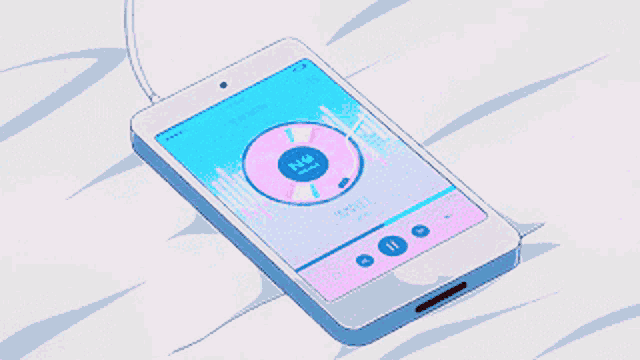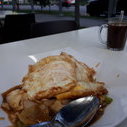Leaderboard
Popular Content
Showing content with the highest reputation on 02/28/21 in all areas
-
Chrome on mobile for Android changed their tab layout recently, but I kinda prefer the ogiginal version. New versions of Chrome now show multiple tabs in a grid layout as such: What about those who prefer the conventionional tab layout? in your address bar, head over to chrome://flags and search for "grid": Under Tab Grid Layout, select "Disabled" and there will be a prompt to relaunch the app. Relaunch it AND kill it again using task manager, then launch it again. Now you will see the perfect layout as it always should have been: lovely isn't it.3 points
-
2 points
-
2 points
-
You think of cancer as inevitable, like death and taxes, emphasis on the former. The statistics are indeed scary: In 2019, cancer overtook heart disease as the leading cause of death in middle-aged adults living in wealthy countries. Almost 4 in 10 Americans will be diagnosed with cancer this year, and nearly 600,000 will die of the disease. Yet you shouldn't feel helpless: In fact, 30 to 50 percent of cancer cases are fully preventable, the World Health Organization says. How? By avoiding these common cancer-causing habits. Read on, and to ensure your health and the health of others, don't miss these Sure Signs You've Already Had Coronavirus. 1 Eating Too Much Sugar Sugar in spoon Americans eat too much added sugar, and it may lead to an increased risk of cancer. The latest Dietary Guidelines for Americans recommends consuming no more than 12 teaspoons of sugars a day. The average American gets 17 teaspoons! Eating too much added sugar can lead to obesity and inflammation—two cancer risk factors. The Rx: Cut down on added sugars in your diet. That's easier to do, now that food manufacturers are required to list them as a separate line on Nutrition Facts labels. Check them on every packaged product you buy. 2 Eating Processed Meat Fresh sliced bacon with spices on white background In 2015, the International Agency for Research on Cancer officially classified processed meat as a human carcinogen; they're prepared with chemicals that have been found to damage cells in the colon and rectum. In fact, eating just 1.8 ounces a day can increase your risk of colorectal cancer by 18 percent. What counts as processed meat? Ham, sausage, hot dogs, pepperoni and salami, beef jerky and deli meats, including turkey and roast beef. The Rx: The MD Anderson Cancer Center recommends eating processed meat less frequently or not at all, and increasing the number of plant-based or meatless meals you eat each week. 3 Eating Processed Foods Woman reaching for chip and holding soda in processed junk food array on table with popcorn "Processed foods are packed with myriad toxic chemicals which can increase cancer risk," says Yeral Patel, MD, a board-certified family medicine physician in Newport Beach, California. "Consumption of processed foods causes inflammation—one of the leading contributors to cancer—and these foods also lack key micronutrients (essential vitamins and minerals) on which our bodies depend to rid themselves of harmful toxins." The Rx: Fill your diet with as many whole foods as you can, and ensure the packaged foods you buy contain as few ingredients as possible. 4 Working the Late Shift Young exhausted,depressed,concentrated woman sitting in her room or office with french windows in the dark at the lamp Women who work the night shift have a 19 percent higher risk of cancer, according to a 2018 meta-analysis of studies published in the journal Cancer Biomarkers and Prevention. Researchers theorize that staying up at night disrupts production of the sleep hormone melatonin, which may protect against the disease. The Rx: If you work the graveyard shift, you may want to switch to daylight hours. 5 Using Talcum Powder talcum powder to hand A study in the journal Epidemiology found that using talcum powder (baby powder) on the area surrounding the genitals increased the risk of developing ovarian cancer by 33 percent. Another study found that using talcum powder raised endometrial cancer risk by 24 percent. Why? Some researchers theorize that talc, the mineral that is mined to make talcum powder, is often contaminated with asbestos, a potent carcinogen. The Rx: Avoid talcum powder. For personal hygiene, use a natural alternative such as cornstarch instead. 6 Using Plastic plastic containers Some plastic containers contain BPA, a synthetic hormone that can disrupt the body's endocrine system and potentially increase the risk of breast cancer. The Rx: It's not definitive that plastic actually causes cancer. But it's a good idea to choose plastics that are BPA-free and to use alternative containers, such as glass, whenever possible. 7 Eating Fries and Chips Fries with mayo and ketchup Acrylamide is a chemical found in tobacco smoke and industrial products. It's also formed when vegetables, like potatoes, that contain certain sugars are heated. Those foods include french fries, potato chips, crackers, breads, cookies and breakfast cereals. Animal studies show that acrylamide can damage DNA, raising cancer risk. Although the research isn't definitive in humans, why risk it? The Rx: Reducing the amount of processed foods you eat in general is a proven way to reduce cancer risk and improve heart health. (Read: You should be cutting down on those fries, chips and cookies anyway.) 8 Poor Oral Hygiene A 2018 study published in the Journal of the National Cancer Institute found that gum disease is associated with a 24 percent increase in lung and colorectal cancer. Why? Researchers theorize gum disease may change immune response or distribute harmful bacteria throughout the body. The Rx: Practice good oral hygiene: Brush and floss twice a day, and see your dentist twice a year. 9 Stressing Out Worried woman at home alone There isn't strong evidence that stress can directly cause cancer. But, the National Cancer Institute notes, stressed people are likely to develop bad habits such as "smoking, overeating, or drinking alcohol—all of which increase cancer risk. The Rx: Take active steps to reduce stress, including exercise, socializing, doing relaxation exercises or talking with a mental-health professional. 10 Eating Charred Meat Spicy Grilled Jerk Chicken with Lime and Spices According to the National Cancer Institute, studies have found that flame-grilling or frying meat at high temperatures can form chemicals that can damage DNA, increasing your risk of cancer. The Rx: Avoid blackened meats. Baking, roasting and broiling are safer cooking methods. If you can't live without the barbecue, don't overcook. Marinating your meat for 30 minutes before grilling, and/or zapping it in microwave for 60 seconds after, drastically reduces cancer-causing compounds caused by flame-grilling. 11 Using Parabens A hand holds a blue jar and a magnifier, where the harmful ingredients of a detergent are written in close up. According to research published in the Journal of Applied Toxicology, parabens—chemical preservatives used in toothpastes, shampoos, deodorants and cosmetics—are easily absorbed through the skin and can boost the growth of breast cancer cells. The Rx: Look for products that are paraben-free. Common parabens include methylparaben, propylparaben, ethylparaben and butylparaben. 12 In the Bedroom A couple near the window, under one blue blanket Sorry to break it to you. According to a study published in the Journal of Clinical Oncology, cases of oropharyngeal cancer have risen in the United States over three decades, and HPV (human papillomavirus) is the culprit. The Rx: The good news: Research has shown that the HPV vaccine protects against oral cancer in addition to cervical cancer. Get your children vaccinated as recommended. And the FDA recently approved the vaccine up to age 45. 13 Smoking A close up image of an open package of cigarettes. The most common cancer is lung cancer, and the most common cause of lung cancer is smoking. Tobacco smoke contains 7,000 chemicals, and at least 70 of them are carcinogens, raising your risk of cancer in nearly every part of the body. According to the WHO, tobacco use is the single greatest avoidable risk factor for cancer death; it kills nearly 6 million people a year worldwide. The Rx: If you smoke, stop. (It's never too late: Studies show that even smokers who quit as senior citizens extend their lives.) If you don't use tobacco, don't start. 14 Inhaling Secondhand Smoke Closeup portrait headshot woman pinches nose with fingers hands looks with disgust Just like smoking itself, inhaling secondhand smoke causes lung cancer. It has also been linked to an increased risk of breast cancer, nasal sinus cavity cancer and nasopharyngeal cancer in adults and leukemia, lymphoma and brain tumors in children, the National Cancer Institute says. The Rx: Avoid secondhand smoke whenever possible. Researchers at Stanford University suggest moving at least six feet away from smokers to lower your exposure. 15 Excessive Drinking Friends Eating Out In Sports Bar With Screens In Background According to the National Cancer Institute, drinking alcohol can increase your risk of cancer of the mouth, throat, esophagus, larynx, liver, and breast. The more you drink, the higher your risk of getting cancer. The Rx: Health experts, including the American Cancer Society, recommend moderate drinking: No more than two alcoholic drinks a day for men, and one for women. 16 Not Exercising Regularly Couple Walking Along Suburban Street Holding Hands "One of the biggest causes of cancer is leading a sedentary lifestyle," says Patel. "The human body needs to move. Exercise is crucial to help eliminate harmful toxins from the body." The Rx: "Simply breaking a sweat by walking (or doing some kind of cardio) for 30 to 40 minutes a day is enough exercise to reduce risk," says Patel. 17 Chronic Inflammation Sick woman having a stomach ache Inflammation is a good thing—it's the first step as the immune system clicks into gear to heal a wound. But chronic inflammation throughout the body, when there is no injury, can damage DNA and lead to cancer. What causes chronic inflammation? Smoking, excessive drinking and a poor diet rife with processed foods and added sugar. The Rx: Don't smoke, drink moderately or not at all, and eat an anti-inflammatory diet such as the Mediterranean Diet, which emphasizes fruits and vegetables, lean protein and healthy fats and de-emphasizes added sugars and processed foods. 18 Excessive Sun Exposure elderly women Wearing blue sunglasses Walking around the sea Sunlight produces ultraviolet (UV) radiation, which is the number one cause of skin cancer, including squamous cell and basal cell carcinoma. Getting a sunburn just once every two years can triple your risk of melanoma, the deadliest type of skin cancer. The Rx: Wear sunscreen of at least 30 SPF during prolonged sun exposure. Avoid tanning beds. Do a self-check once a month for any moles or freckles that have changed shape, size, appearance or color or are bleeding. And have your healthcare provider do a full-body check for signs of skin cancer once a year. 19 Being Overweight Man with hand on his stomach to depict indigestion According to the International Agency for Research on Cancer, 13 cancers are associated with being overweight or obese, including esophagus, thyroid, postmenopausal breast, gallbladder, stomach, liver, pancreas, kidney, ovaries, uterus, colon and rectum. Researchers aren't sure how excess fat leads to cancer, but the statistics are stark and clear: A CDC analysis found that 40 percent of cancers diagnosed in the United States are now associated with being overweight or obese. The Rx: Maintain a healthy weight as a lifestyle, via regular exercise and a sensible diet grounded in plenty of whole foods. 20 Not Eating Enough Fruits and Vegetables Assortment of fresh fruits and vegetables According to a study published in the journal Cancer Prevention Research, "consumption of fruit and/or vegetables has been inversely associated with head and neck, esophageal, stomach, and colorectal cancer risk." Researchers hypothesize that's because fruit and vegetables are rich in fiber, antioxidants and detoxifying enzymes. The Rx: At every meal, aim to fill half your plate with fruits and vegetables. The current Dietary Guidelines for Americans recommends eating at least 2 ½ cups of vegetables and 2 cups of fruit every day. As for yourself: To get through this pandemic without catching coronavirus, don’t miss this essential list: Most COVID Patients Did This Before Getting Sick. https://sg.yahoo.com/style/20-most-common-cancer-causing-111224545.html2 points
-
Tanjong pagar crash Pri 6 student suicide Kallang mrt track death Elderly uncle dead on same day after vaccine 3 dead in tuas factory explosion Lift technician dead during repair Construction boss fell to death on site SAF regular pass away after PT Marsiling park tree collapse yishun safra campsite incident Kranji forest destroyed Wild boar killed someone2 points
-
2 points
-
2 points
-
2 points
-
2 points
-
2 points
-
SINGAPORE - Will giving 30 seconds of your time to someone in a YouTube advertisement actually help you get rich? Ads on YouTube, like those by LeapVista, claim they can change your life, if only you click on the provided link. Doing so on the LeapVista ad takes users to a page to sign up for a Web class which will teach attendees the "closely guarded secret" of selling products on Amazon. The class is essentially a guide on how to utilise the Fulfilment By Amazon (FBA) service, which allows sellers to sell products more efficiently through the platform by having Amazon handle storage, packing and delivery. Other ads tout a variety of products and courses, including investment schemes, insurance, marketing classes and courses on starting a business. Many of them claim that one can get rich by investing or taking part in a programme. The Straits Times checked out six entities with such ads running on YouTube, and found that three, which were touting investment and insurance products, are not registered businesses here. The other three, which include LeapVista, touted courses run by self-styled "gurus". None responded to queries. Last month, it was reported that the Monetary Authority of Singapore (MAS) was looking into misleading insurance advertisements. This was in response to a YouTube ad offering critical illness cover, claiming clients could "claim up to 500 per cent" if diagnosed with over 100 types of illnesses. The ad also claimed customers could get a full refund on all premiums if they did not make any claims. MAS said it regulates such ads, which must provide a fair and balanced view of investment products. Outside of investment products, however, ads claiming one can learn to become rich after attending a course are not within MAS' jurisdiction. Mr Kelvin Goh, 41, head of wealth advisory at OCBC, said many of these ad "gurus" are simply conducting courses on marketing, investment and starting a business. They are not selling an investment product, but instead up-selling the possibility of one getting rich by having better business strategies. Such courses include those on affiliate marketing, which is a type of marketing done by affiliates who are then paid for each visitor or customer they bring to the site. Asked if such courses can indeed make one rich, Mr Goh said it was possible, but cautioned that not everyone is able to do it successfully. "Everything is always possible. But realistically speaking, it's very difficult to get rich overnight, and involves incredible amounts of risk at times," he said. "Many of these ads I've seen make certain claims, but you have to take that into context and some of them may not apply to your own personal situation." He added that much of the advice shared at such courses can be gained from library books. Mr Goh also said getting a certified financial consultant would always be preferable when looking at investments. "My colleagues go through rigorous training, and have to go through and pass a set of tests administered by the regulatory bodies before they are allowed to practise," he said. Ms Yeo Wenxian, head of POSB and DBS branch banking at DBS Bank, said its wealth planning managers (WPMs) also have to go through robust training programmes and obtain the relevant licences before they can advise customers. She said: "In accordance with our company policies and processes, our WPMs do not market themselves or their services via ads or on social media. "Only in a case where a product has guaranteed returns will our WPMs state so to our customers, and this will also be documented within the product package itself." Professor Ang Peng Hwa, chairman of the Advertising Standards Authority of Singapore (ASAS), said it twice received feedback on LeapVista's advertisements last year. He said consumers should conduct their due diligence before signing up, and note that past performance may not be indicative of future results. "For LeapVista's advertisements, we note that these are for educational courses that claim to teach people to set up their own e-commerce businesses and not investments," he said. Prof Ang added that the guidelines of the Singapore Code of Advertising Practice state that all advertisements should be legal, decent, honest and truthful. He said: "Advertisements should not mislead in any way by inaccuracy, ambiguity, exaggeration, omission or otherwise." Consumers who find that advertisers did not deliver on the claims in their advertisements may write to ASAS here and include a clear copy of the advertisement. Ask, check and confirm: MAS The Monetary Authority of Singapore (MAS) strongly encourages consumers to deal only with entities regulated by MAS, so they will be protected by the laws administered by MAS. Before committing to an investment, consumers are advised to always ask, check and confirm to avoid any potential scams. ASK: Ask as many questions as you need to fully understand the investment opportunity. If the company is unable to reply or avoids answering any of your questions, be wary. CHECK: Check on the company, its owners, directors and management members to assess if the opportunity is genuine. CONFIRM: Confirm the company's and representatives' credentials by using available resources. Publicly available resources: • Financial Institutions Directory: a list of financial institutions regulated by MAS and the regulated activities they are authorised to provide. • Register of Representatives: a list of individuals who conduct activities regulated by MAS. • Investor Alert List: a list of persons unregulated by MAS who may have been wrongly perceived as being licensed or authorised by MAS. Regardless of whether an entity is regulated by MAS, it is an offence to operate a fraudulent or deceptive business. If investors suspect there may be some criminal wrongdoing or fraud, they may wish to report the matter to the Commercial Affairs Department. https://www.straitstimes.com/singapore/be-wary-of-get-rich-ads-on-youtube-say-experts1 point
-
Heads Up for Those with Allergy & Heart Conditions Hot & Hazy weather has been going on for more then a week liao.Started before CNY! Sorry i busy lah! Crop Fires prevalling from the Northern Countries with wind carrying Ultra Fine dust particles down south. We are getting NNE-NNW winds now! The smaller the dust the higher & further it spreads! Top pic- shows you where teh source of dust and fires are. Center pic- show the Temp and Humidity! Bottom pic - shows you amount of ultra fine dust particles in my room (@9pm). The Red circle highlights the Ultra fine particles size (+-50) and amount of dust in 1L of air! Although the instrument i use is not professional grade but i'm use it as a gauge! Our NEA is (reflective of our leaders) so must rely on myself! The surgical mask we use filters up to 0.3um (As we now know virus are smaller then 0.3um)! This tool i am using measures up to 0.3um & you can see the high volume of ultra fine dust in our air.. These 0.3 & smaller dust particles gets into our lungs and blood stream and will cause long term chronic sickness & heart failure! The cause air pollutants are found in Health Matters https://mugentech.net/index.php?/topic/7354-health-matters/&do=findComment&comment=574791 point
-
1 point
-
1 point
-
1 point
-
Not every ger suit short hair... And they cut bcos their hair is damaged so need regrow1 point
-
1 point
-
SEOUL - Move aside, kimchi. Korean ramyeon, or instant noodles, is now the rage. Exports hit a record high last year, hitting US$603 million (S$803.3 million) - four times more than kimchi - amid stronger demand for ready-to-cook meals during the Covid-19 pandemic. The figure marked a 29.3 per cent increase from 2019, Korea Customs Service data showed. China was the largest overseas market for ramyeon, followed by the United States, Japan, Thailand and the Philippines. The Japanese may have invented instant noodles, but the Koreans spiced it up with tongue-tingling flavours such as food giant Nongshim's best-seller Shin ramyeon, which comes in a spicy beef base soup, and Samyang's buldak-myeon, commonly known as fire noodles. Ramyeon is known to be comfort food for the Koreans who can whip up a pot any time of the day. Even when out on a picnic along the Han River in Seoul, Koreans will bring along cup noodles and hot water, or go to the nearest convenience store to buy a packet of ramyeon to be prepared on an aluminium tray. They are also spoilt for choice, as ramyeon makers vie to introduce new and exciting flavours to entice consumers, especially those who live alone. Even traditional foods such as army stew and gamjatang (pork bone soup) have found their way into ramyeon packets. Ms Kim Seul-won, who works in a legal office, eats ramyeon two to three times a week. "It is easy to cook and eat, it is delicious, and I can eat it without proper banchan (side dishes)," Ms Kim, 28, told The Straits Times. "There are so many types of ramyeon available, so it's nice to be able to choose what flavour I want to eat." Ms Kim Seul-won with one of her favourite brands. PHOTO: COURTESY OF KIM SEUL-WON Experts said ramyeon was already getting popular overseas due to the Korean Wave, with it being portrayed as a delicious and essential part of Korean life in numerous dramas. In the 2016 hit drama Descendants Of The Sun, the elite soldier played by Song Joong-ki is seen asking the surgeon played by Song Hye-kyo: "Ramyeon meokgo galrae?" which means "Do you want to eat ramyeon before you go?" This is a common refrain heard among dating couples. South Korea's largest noodle maker Nongshim said it has been running its factories in the US and China at full capacity and ramping up exports. A Nongshim official said the Chinese love Shin ramyeon, the company's best seller, for its "spicy taste unique to Korea that cannot be found in China". "Shin ramyeon has established itself so successfully that many Chinese people regard it as their own product," the official said. "It was even selected as a Korean luxury product loved by the Chinese in 2018." In the US, it was the overwhelming popularity of boy band BTS and Oscar-winning Korean film Parasite that drove the sales of ramyeon last year. It was as if "chapaguri won the Oscars", JoongAng Ilbo newspaper wrote, referring to the noodles seen in the film that shot to global fame after it was named Best Picture in February last year. Chapaguri is a mixture of two key Nongshim products - chapagetti (dry noodles in sweet black bean paste) and neoguri (noodles in spicy seafood soup). In Parasite, a story of class divide, the cheap dish gets upgraded with premium hanwoo (Korean beef) in a rich man's house. The posh nosh inspired a legion of cooking video clips online, many getting millions of views on YouTube and other social media channels. Meanwhile, fans of the hugely popular BTS have been learning about ramyeon through their idols. The jet-setting group is known to travel with all kinds of ramyeon in their suitcases and have appeared in various variety shows eating all kinds of ramyeon. YouTube eating channels have also helped fuel the popularity of ramyeon, with one such video clip garnering 71 million views. Samyang's spicy fire noodles took YouTube by storm in 2014 after viral videos emerged of people challenging themselves to eat them, sweating buckets in the process. Given a surge in global demand for ramyeon, Samyang said it would try to widen its product range and grow the US into a major export market. A word of caution though. Ramyeon is also known to be unhealthy, loaded with oil, sodium and preservatives. "I'm a little worried about it being unhealthy so I'm trying not to eat so much," said Ms Kim.1 point
-
1 point
-
this one like quite style leh...think last time xu meizhen got this cut before1 point
-
1 point
-
the world is full of kgks. sakti kias like me is go work here. wahahahhahahhaha1 point
-
1 point
-
1 point
-
1 point
-
1 point
-
1 point
-
1 point
-
1 point
-
you guys miss the point, now is msm post his company big big ahhahahahaha1 point
-
1 point
-
1 point
-
for me is worth it 10k x 1 yr is 120k, i work 6 yr i got enough to donw payment a few condo to rental them out. then live on the passive income1 point
-
We have discussed this like 2-3 mths ago...the news like outdated one...haha1 point
-
1 point
-
1 point
-
Kidney Stones Diet Prevention I have friends who body build, also got KS . Those on Protein Shakes, pse note. https://www.tampabaynewswire.com/2019/11/19/can-meal-replacement-protein-drinks-cause-kidney-stones-82127 Keto Diet also need to be mindful https://www.healthline.com/nutrition/dangers-of-keto-diet Yah... So many things must eat in moderation and hydrate well!1 point
-
1 point
-
Don't cut too short, if not later face like biscuit1 point
-
0 points
-
kindly be reminded this is a serious forum. off topic chatters, please go to the chit chat zone. Thank you.0 points
This leaderboard is set to Singapore/GMT+08:00










